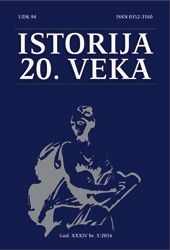
We kindly inform you that, as long as the subject affiliation of our 300.000+ articles is in progress, you might get unsufficient or no results on your third level or second level search. In this case, please broaden your search criteria.

Six Major Powers (Germany, Austro-Hungary, England, Russia, France, Italy) besides Russia unsatisfied with the decisions taken in the San Stefano Treaty between the Ottoman Empire and the Russian Empire (the latter to dominate in terms of the treaty), called the Berlin Congress on June 13, 1878, to design a new political map of Europe, to stop the momentum of Russia and to set their strategic and influence points in the countries of the Balkan Peninsula. Major Powers at the Berlin Congress have treated problems of Balkan states, but have not solved their crisis. In the worst manner the Albanians problem was treated, where not only did not won their state as other Balkan states but even worse, its territorial integrity served as spoil of market to satisfy the appetites of the Balkan states, and which were supported even from diplomacy of European states.
More...
By browsing the material, we can conclude that the newspaper "The Orthodox League", although it did not last long, nearly a full year, it has become a real voice of problems that have generally passed the Albanian people and the Albanians of Orthodox religion in particular. If Fan Noli virtually vitalized the Autocephalous Orthodox Church of Albania, then to the zealous messenger "The Orthodox League," without doubt, has belonged the lead in delivering echo of this epochal event, showing persistent in spreading this spirit, especially to the Albanian Orthodox believers. In other words, there was given a space also to the patriots in order to express their views openly, through this newspaper. Along the religious slogan, which was put by the newspaper’s executives, there were not left aside also the other political and cultural aspects, which took a considerable space. As usual, the writing of Albanian Language with Latin characters, struggle for the spread of this alphabet and disclosure of those who sought to impede the spread of this alphabet, from beginning to end have composed the news in the front page of the newspaper. The major national events that occurred in those years, to the extent the newspaper was published, were treated with great care. The leaders of "The Orthodox League" were faithful messengers of sessions from overcrowded halls where were held The Congress of Manastir, of Dibër and several other meetings. So, for those years as it was present in the corpus of Rilindja Kombëtare press, despite fewer numbers of publication, the newspaper was an icon for that time, spreading thus, the essential idea of unity, outside religious schism and coherent with the moving force and homogenization of the Albanian Orthodox believers.
More...
Russia is one of the powers of the European Concert that had primary geopolitical and strategic interests in the Balkan Peninsula as well as in the Ottoman Empire. During 1911 as a consequence of the political strategy that Istanbul was acting towards Albanians, among the latter started to increase more and more the political and insurgency movements for the fulfillment of their national and political aspirations. The outbreak of the Albanians uprising in Malësia e Mbishkodrës against the Ottomans caused a tense situation with the Porte. With the involvement of Montenegro with its economy, military and people in this rebellion there was also the potential risk of either a Montenegrin-Ottoman conflict or another Balkan country with the Ottoman Empire. The Austria-Hungary diplomacy became more active, as well as the Italian. The desire to prevent damage to Russia's influence among the Slavic peoples in the Balkans, the possibility of breaking the status quo or the balance of forces, as well as the problems that these events could cause to the accomplishment of Russia's purpose obligated somehow the external diplomacy necessary to perform better regarding her own interests. A discussion of the dynamics, decisions and attitudes that Russia's diplomacy conducted towards the Albanian issue is the aim of this article that is being presented to you. The conclusion of the article is that the foreign policy of St Petersburg found itself in a conundrum, political as well as diplomatic, egocentric as well as collective, inclusive as well as indifferent.
More...
On this study we will try to prove the role of Price of Wied: 1) Why a German Prince was selected? First attempt to bring the European model of governance after the creation of Albanian state; 2) Why Durrës is chosen for a capital? Brief economic and political overview of capital Durrës; 3) Dilemma: Did Prince of Wied really fail? This study is based on archival sources as: Albanian National Archives (Funds of period 1913-1914, etc.), and the Archive of Historical Institute, Center of Albanological Studies (Fund of Austro-Hungary); documentary sources edited till today; the data of Albanian press; etc. Also, there have been used the famous memories of much known personalities of the time, Prince of Wied, Eqrem Bej Vlora, etc. All of these describe difficulties that Price of Wied had to face in order to accept the decision of Great Powers. It also emerges the character of his determination to carry out to the end the mission and the goal that he has set to himself, despite of many difficulties towards political stability of Albania.
More...
Review of: Dr. Liman Rushiti, Regulation and Administrative territorial Division of Kosovo 1878-1941, Instituti i Historisë, Prishtinë, 2004
More...
In the whirl (swirl) of tensioned relations between the Albanian national Movement and Greece in the years of the Eastern Crisis, contradictions in realtions of the Albanians with the Greck official subjects took a negative course, and even e dramatic one just with the Congress of Berlin. In this context there two cenytral(main) reasons thet caused (brought) intolerance between the two sides in the Eastern Crisis and especially in June of 1878. Trating unjustly the Albanian problem by this international high diplomatic forum and territorial ethnical territories with in the Vilayet of Yanina.
More...
With the departure of Prince Widi on September 3, 1914 began the second phase of the uprising in central Albania. This period coincides with the beginning of World War I and is characterized by the growth of the Turkish influence in Albania. In agreement with the Austro-Hungarians one of the leading exponents of the Young Turks, Enver Pasha who now held the post of Minister of War, decided to send in Shkodra General Kara Said Pasha, who would deal with the organization of the Alba-nians against the common enemy Serbia. Berchtold informed the Austro-Hungarian ambassador in Rome and Consul aunt in Shkodra that trip was the initiative of General Ottoman Turks, whose interests in Albania, although not absolute, for now, fully con-sistent with those of Austria-Hungary . He ordered cautioned, for avoiding frequent dealings with, which can foster distrust of the Italians. Propaganda that he did had aroused dissatisfaction among the AustroHungarian military authorities, as he often talked about the future Albanian autonomy headed by an Ottoman prince and to end the suffering of the Albanian people under Austro-Hungary.
More...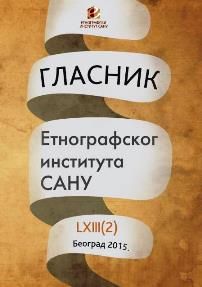
In this paper I want to review the thinking of some Italian republicans’ ideologists and patriots for what concerns the matter of National orders of Southern Slavs, with more attention to the Western Balkans. I argue that the Republicans had a particular conception of the National issues, different from the concepts of Nation and Nationality as intended by the Socialists, the Liberals and the Monarchists. Also I would like to underline a particular sensibility on the matter of the Nationality in Balkans by that Italian patriots subjected to the Austrian crown. Of course I will deal with the ideas of Giuseppe Mazzini, that has already been well studied by the Italian, Slav and International historiography, but also the ideas of Tommaseo, Italian from Dalmatia, republican but not on the same positions of Mazzini, of Attilio and Emilio Bandiera, Venetian patriots near to Mazzini’s thinking, but independent in actions and political practice. I will also give some elements about the vision of the International order of liberals, monarchists and, overall, not Austrian’s subjected. The study of those topics appears very current in this period of crisis of the state-nation concept and seems useful to reconsider concepts such as unity, integration and solidarity of Europe and between Nations.
More...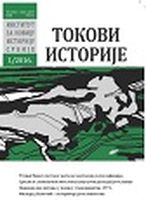
The most representative part of Milorad Ekmečić’s work dealing with the history of the Yugoslav idea and movement is presented by analyses of his concepts, methods, documents and literature. Analyses are focused on his famous essay on the destiny of the Yugoslav idea and his most important work about the creation of Yugoslavia.
More...
Stefan Berger – Chris Lorenz (eds.): The Contested Nation: Ethnicity, Class, Religion and Gender in National Histories. Palgrave Macmillan, CPI, Chippenham and Eastbourne, 2011. 552 oldal
More...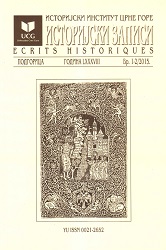
Through analysis of archive documents and published sources, as well as press and relevant literature, an attempt has been made to present the position of Montenegro in the revolutionary perspective of Communist Party of Yugoslavia. The aforementioned problem is examined in the period between the introduction of the personal regime of king Aleksandar Karađorđević and the beginning of the World War II in the Kingdom of Yugoslavia. The first section of the work deals with the relations of communists towards the Montenegrin national issue, while the second section is about the Party’s territorial and organizational policy in the area of banovina Zeta.
More...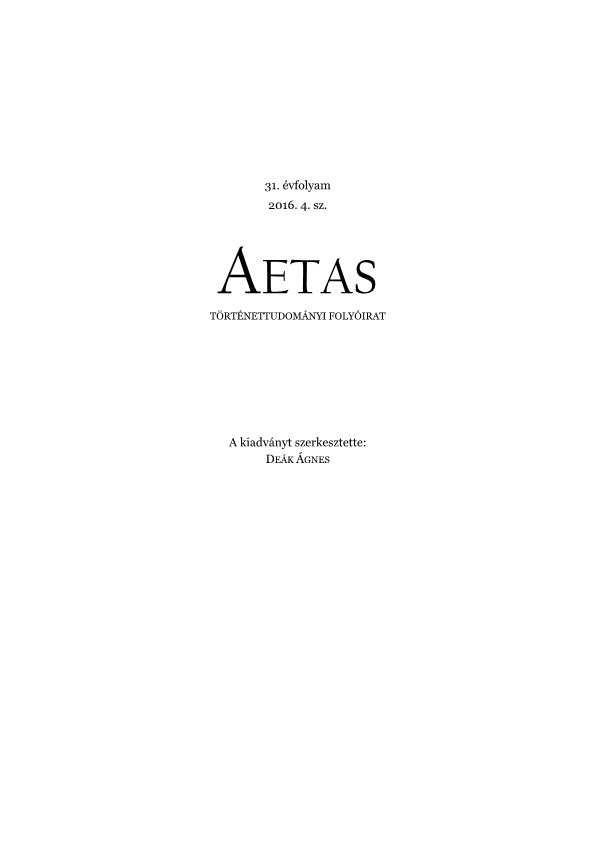
The paper intends to continue the exploration of the personal and historiographical relationship between Károly Tagányi (1858–1924) and his fellow historian Gyula Szekfű (1883-1955), who was one generation younger. Efforts to do so had already been made but were discontinued in the 1970s. By picking up the thread, my objective is to deepen Károly Tagányi’s still rather neglected historiographical reception. The paper follows the relationship of the two historians from Szekfű’s arrival in Vienna (1907) until the publication of his first work receiving widespread attention, Serviensek és familiárisok (1912). In the first half of the paper, which primarily draws on information found in manuscript letters, I focus on that segment of the social network surrounding Gyula Szekfű in Buda and later in Vienna which is related to his move to Vienna. One the one hand, I do so because my goal is to determine, more accurately than before, the role Tagányi played in this; on the other hand because their personal and professional rapport, the masterdisciple relationship, which lays the foundation of their future relations, originates from this period. In the second half of the paper, I explore the effective influence of Károly Tagányi’s historiography in Szekfű’s first notable work that is the most closely related to Tagányi’s historiography from among all his writings. In this respect, the study of both historiographical information and that gleaned from the correspondence of this period shows that, contrary to previous views, the criticism of Werbőczy Szekfű voices in his Serviensek does not originate with Tagányi but was Szekfű’s own invention, for the substantiation of which, however, he did draw on the rhetoric of Tagányi’s writings. Nevertheless, the social and government historical concept in Serviensek that was, to some extent, effectively inspired by Tagányi did influence the later writings of Tagányi as well, though contemporary reception (mainly Bálint Hóman and Henrik Marczali) was strongly critical of the narrative truth of the work. And the professional relationship developing between them is also noticeable later up until Károly Tagányi’s death (1924) in a plan for a common undertaking that was ultimately not realized.
More...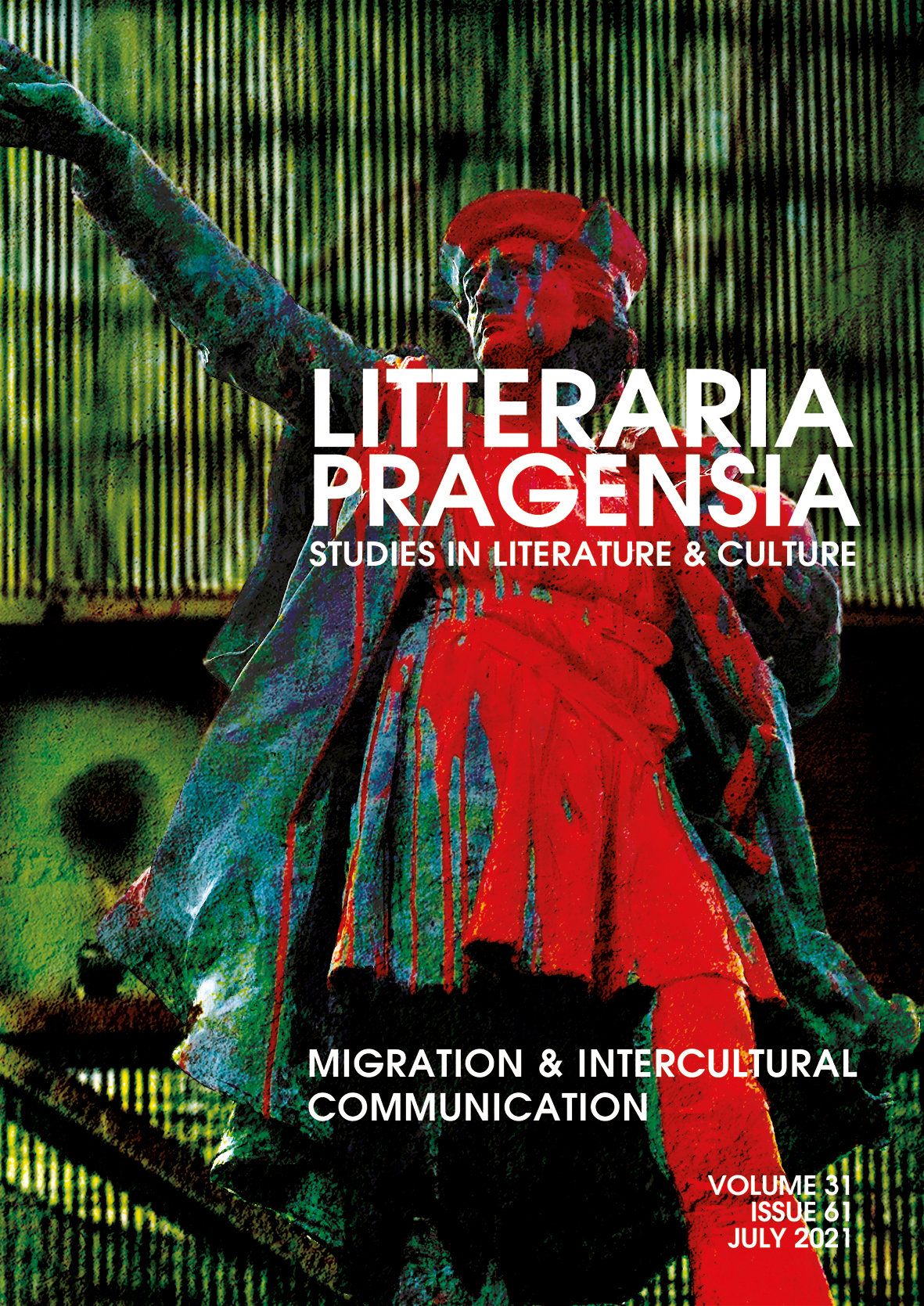
This essay considers the dynamic relationship between immigration, migration, national identity, and racial formation in United States history, with a close focus on the early twentieth century, when these phenomena were dramatically mobilized. More specifically, it focuses on a set of interlocking social and intellectual movements – immigration, internal migration, and intellectual connections – that shaped an early phase of immigration restriction, and draws upon the biographies of several prominent eugenicists to showcase the relationship between social movements, intellectual currents, and national borders. This history, the author concludes at the end, is especially relevant right now, with the effort to re-establish hard walls along national borders to achieve eugenic, bio-political ends.
More...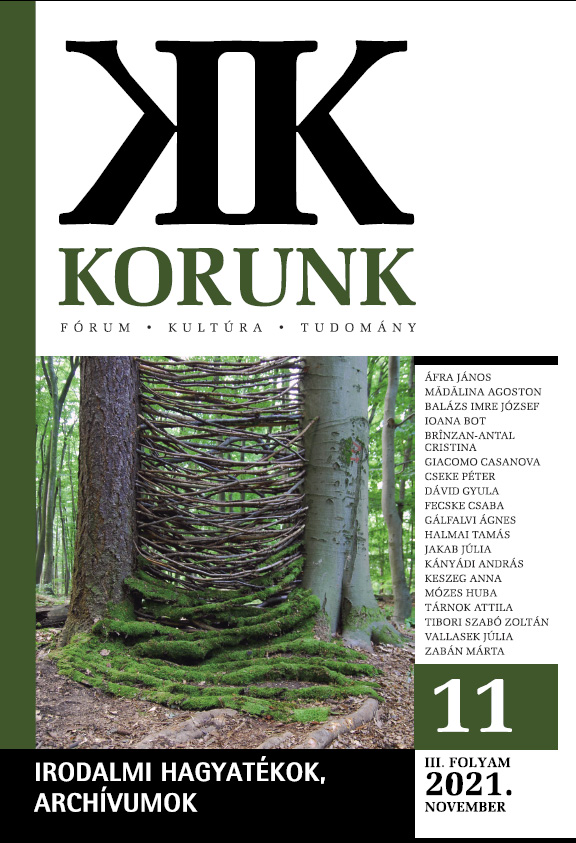
The 19th century history of cultural associations offers a rich and important variety of resources for social history research. The historical records of Kölcsey Association in Arad not only make it possible to reconstruct the restricted validity of a local-scale initiative, but also reveal the role of a particularly important institution with diverse functions in the social life of the age. In this study, I try to place the history of the first years of the Kölcsey Association in the context of contemporary association life, and I try to interpret the role of the association in the nation-building efforts of the era through a case study.
More...
The nineteenth-century processes of “nation-building” and national integration took place in the western regions of southeastern Europe against a distinctive backdrop. The formation of national self-images, the creation of a national self-definition, and indeed the emergence of any clear consensus on who constituted or should constitute a given national community proved daunting tasks for the multi-ethnic and multi-religious populations of southeastern Europe in the provinces of the Habsburg Monarchy and the Ottoman Empire. The essential contention of this inquiry is that religious and national identities are not clearly interrelated in southeastern Europe (much, indeed, as they are not clearly interrelated elsewhere). I offer, as a clear illustration of the untenability of religious identity as an adequate foundation for nation building, an examination of the case of Bosnia and the development of a sense of identity and national belonging among Bosnian Croats and Muslims. Even the case of the emergence of the modern Serbian and Croatian nations, often cited as archetypes of national identities which developed along religious fault lines, is not as clear as it often seems to be in the public mind. It was not the only possibility, but rather was merely one alternative, an alternative that was shaped as much by internal circumstances as by the prevailing foreign political situation: the emergence, meaning, and “content” of the nation can be interpreted as a response to these factors.
More...